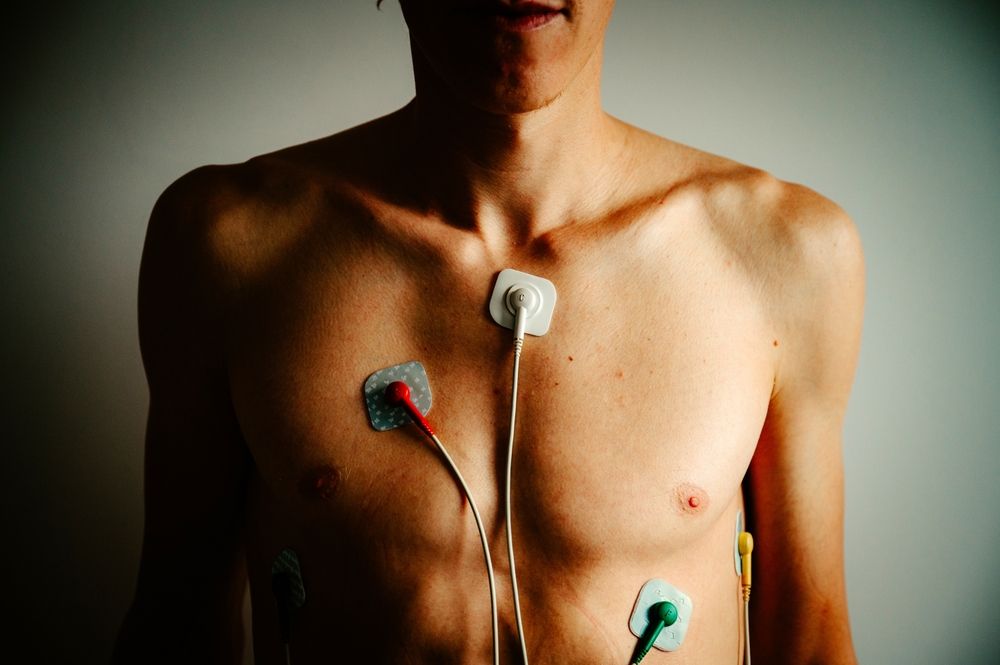Hormones are the body’s chemical messengers, directing everything from energy and mood to metabolism, sleep, and libido. At Vida Revival, we work with men and women who are dealing with the subtle but disruptive symptoms of hormonal imbalance. Through an integrative lens, Dr. Alavi helps patients uncover what’s behind the fatigue, weight changes, low mood, or foggy thinking and guides them toward personalized, hormone-restoring solutions, including bioidentical hormone replacement therapy (BHRT).
Here’s what you need to know about how hormonal imbalances feel, why they happen, and how they can be effectively treated.
What Does Hormonal Imbalance Really Feel Like?
Hormonal imbalances don’t always show up as dramatic health episodes. More often, they develop slowly and manifest as a collection of symptoms that are easy to dismiss—or misattribute to stress, aging, or lifestyle.
While everyone’s experience is different, here are some of the most common signs:
In Women:
- Fatigue even after a full night’s sleep
- Weight gain, especially around the abdomen or hips
- Mood swings or increased anxiety and irritability
- Irregular or heavy periods
- Hot flashes and night sweats
- Low libido
- Brain fog or memory issues
- Hair thinning or brittle nails
These symptoms can be related to changes in estrogen, progesterone, and testosterone levels—especially during perimenopause or menopause. But younger women can also experience hormonal imbalances due to stress, birth control, polycystic ovary syndrome (PCOS), or thyroid dysfunction.
In Men:
- Declining energy and stamina
- Unexplained weight gain or difficulty building muscle
- Irritability or low mood
- Reduced sex drive or erectile issues
- Poor concentration and mental clarity
- Sleep disturbances
- Decreased motivation or confidence
In men, low testosterone is a common culprit, especially as levels naturally begin to decline with age. But stress, poor sleep, nutrient deficiencies, and chronic inflammation can also contribute to hormone disruption at any age.
The result? A growing sense that you’re “not quite yourself,” even if nothing obvious has changed.
How Hormone Imbalance Impacts Your Sleep
Hormonal imbalances often disrupt sleep—either by making it difficult to fall asleep, causing nighttime wake-ups, or leading to poor sleep quality. Cortisol, melatonin, estrogen, and testosterone all play roles in regulating the body’s internal clock. When these hormones are out of balance, the result can be chronic fatigue, reduced mental clarity, and a cycle of stress that only worsens the imbalance. Restoring hormonal harmony often leads to deeper, more restorative sleep—one of the body’s most powerful tools for healing.
Why Hormonal Imbalances Happen
Hormones are sensitive to a wide range of factors. Age is certainly one, but so are diet, stress, sleep, toxin exposure, inflammation, and underlying medical conditions. For women, transitions such as pregnancy, postpartum, and menopause are well-known hormonal pivot points. For men, gradual testosterone decline can begin as early as the 30s.
Other contributors include:
- Chronic stress, which can disrupt cortisol and affect sex hormone production
- Poor gut health, which interferes with hormone metabolism and detoxification
- Blood sugar imbalances, often driven by processed food or irregular eating
- Thyroid dysfunction, which can throw other hormones off balance
- Environmental toxins that mimic or interfere with natural hormones
Because these issues often overlap, a holistic approach is essential to identifying the root causes and mapping out the right treatment plan.
How Vida Revival Approaches Hormonal Health
At Vida Revival, Dr. Alavi takes the time to understand not only your lab results but your full health story: your symptoms, lifestyle, stress levels, environment, and goals. This whole-person perspective helps uncover how your hormones are functioning in the context of your entire system.
The process typically begins with:
- Comprehensive hormone testing (including estrogen, progesterone, testosterone, DHEA, cortisol, thyroid hormones, and more)
- Lifestyle and nutritional evaluation
- Review of past health history and transitions
- Collaborative goal setting for symptom relief and long-term wellness
Once the patterns are clear, she builds a personalized care plan that may include bioidentical hormone therapy, lifestyle support, and additional therapies to help your body restore its natural rhythm.
What Is Bioidentical Hormone Therapy?
Bioidentical hormones are derived from natural sources and designed to mimic the exact structure of the hormones your body produces. This allows them to integrate more smoothly with your body’s systems compared to synthetic versions.
Depending on your needs, BHRT may include:
- Estrogen and progesterone replacement for women experiencing perimenopause, menopause, or other hormonal imbalances
- Testosterone replacement for men dealing with low energy, low libido, or muscle loss
- DHEA or pregnenolone support, which may benefit both men and women with adrenal or cognitive symptoms
The goal isn’t just to normalize your lab numbers. It’s to help you feel like yourself again: clearer, lighter, stronger, and more in tune with your own body.
Results You Can Feel
As hormone levels begin to rebalance, many patients experience improvements that reach well beyond the relief of physical symptoms. Energy often returns with greater consistency, allowing people to move through their day with more ease and motivation. Mental clarity sharpens, making it easier to focus, complete tasks, and stay engaged in both work and personal life.
Emotionally, patients tend to feel more resilient and grounded. Mood swings, irritability, and anxiety often give way to a greater sense of calm and emotional stability. Relationships may feel more connected, and the desire to participate in meaningful activities or hobbies often returns.
Physically, many people notice that their workouts feel more effective and recovery is quicker. Libido, sleep quality, and general vitality often improve as the body begins to operate in sync. Rather than feeling like you’re constantly pushing against fatigue or discomfort, life starts to feel more aligned—mentally, emotionally, and physically.
When hormones are properly supported, your body begins to function with greater ease—allowing you to feel more present, more capable, and more aligned with the life you want to live.
Restoration from Vida Revival in Thousand Oaks
Hormonal imbalance can leave you feeling like a stranger in your own skin. But when hormone levels are optimized and supported holistically, the results can be profound and lasting.
At Vida Revival, Dr. Diana Alavi blends advanced diagnostics with personalized bioidentical hormone therapy and lifestyle care to help you restore balance—naturally and effectively.
Serving Thousand Oaks, Agoura Hills, Calabasas, Westlake Village, and nearby Los Angeles County communities. If you’re ready to feel like yourself again, call 818-232-8432 and schedule a consultation today to take the first step toward hormonal harmony.




